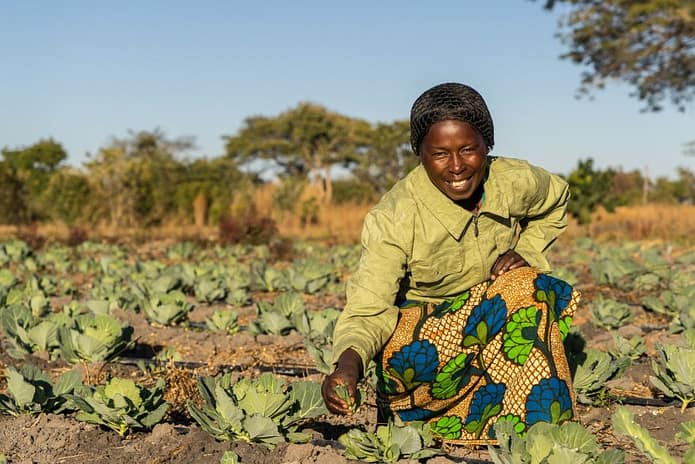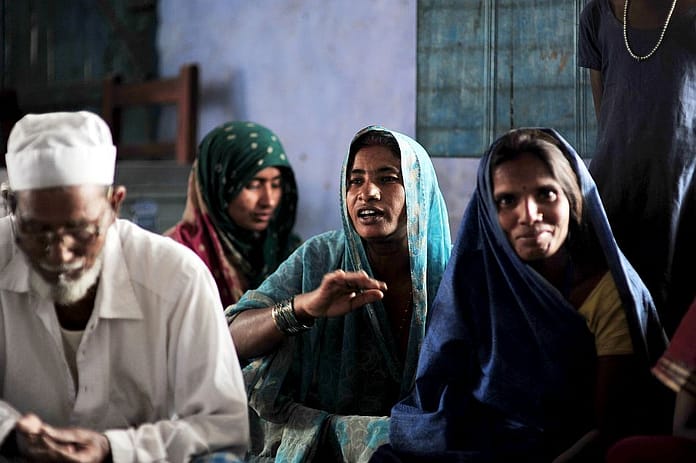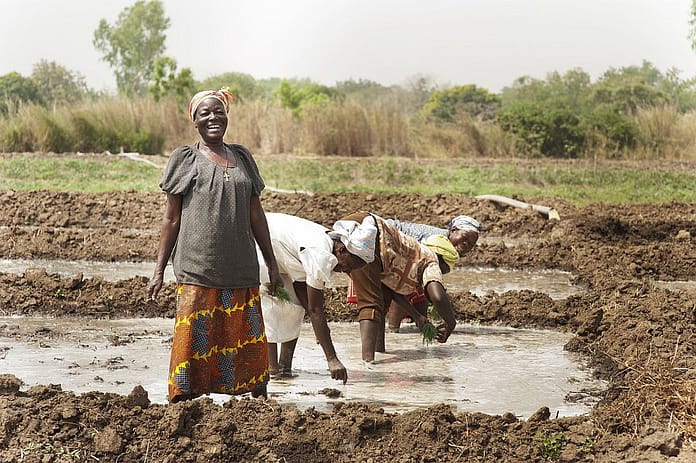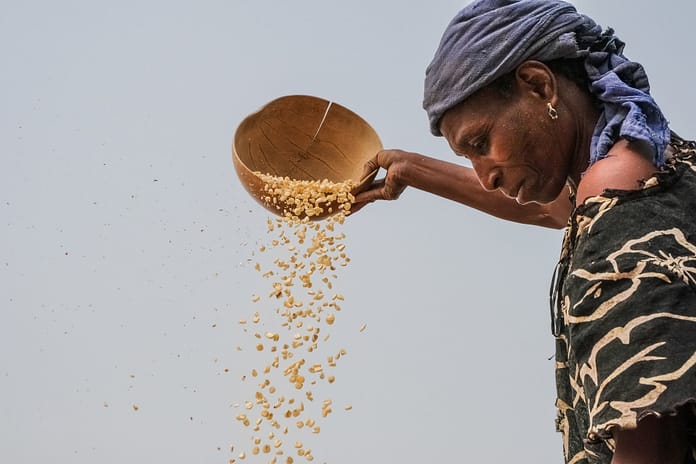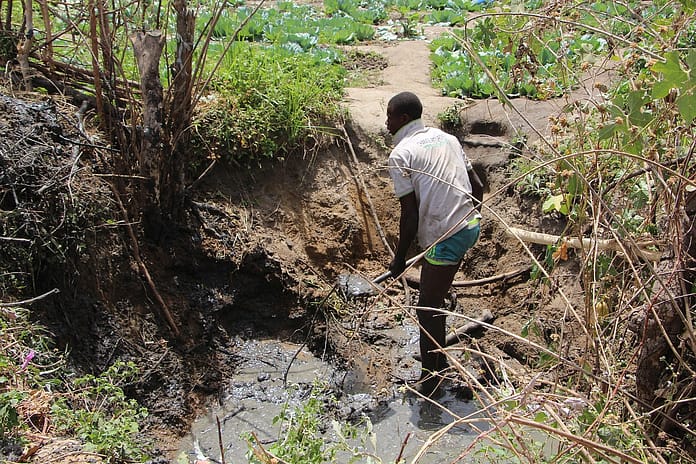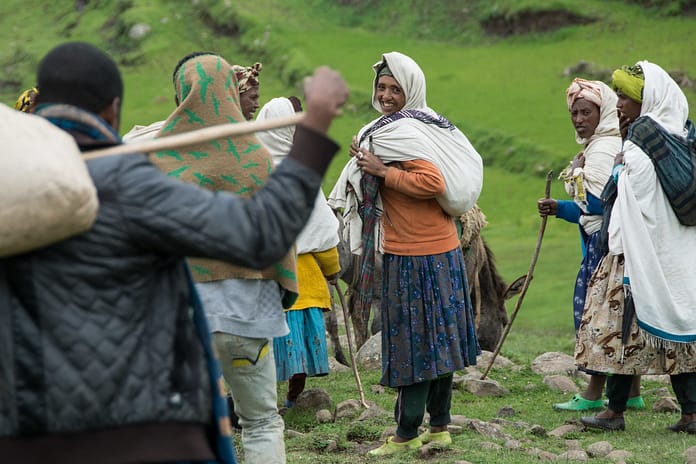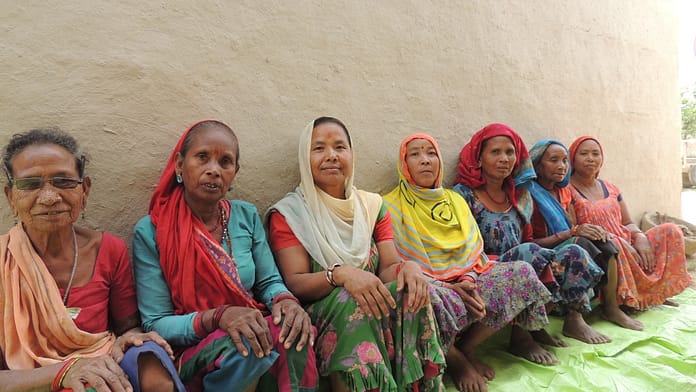By Ngowenani Nohayi and Karen Nortje
As the world commemorated World Refugee Day on the 20th of June 2024, IWMI was reminded of the resilience and courage of millions of people forced to flee their homes amid compounding crises such as conflict, violence, persecution, violation of human rights, economic instability and the effects of climate change. It was a day to reflect on the journeys of these individuals and to celebrate the communities and organizations that offer them support and hope. This year, the spotlight fell on Musina, a town in Limpopo province, South Africa, where two shelters provide refuge to women, children and men seeking security and a chance to rebuild their lives.
In response to acute need IWMI’s Southern African stokvel — a voluntary savings program for IWMI employees — ran a clothing drive. The goal? To alleviate the hardships felt by people seeking refuge and demonstrate the power of community action. Partnering with the Bryanston Primary School’s Community Outreach Programme and the University of South Africa’s (UNISA) Anthropology and Archaeology Department this clothing drive aims to not only spread goodwill but also provides members with a structured way to contribute to charitable work, encouraging a strong sense of community. Running from June 1 to July 31, 2024, this drive demonstrates the power of collective community action.
What do we know about Musina and the shelters?
Musina is a small town and the economic hub of Limpopo province, strategically located in the Limpopo transboundary river basin on South Africa’s national boundary. About 15 kilometers north of the town is the Beitbridge border post, a major gateway connecting South Africa with Zimbabwe and other neighboring countries. For many migrants, asylum seekers and refugees, Musina represents a lifeline—a place of safety and stability amidst the uncertainties left behind in their home countries.
As these individuals arrive, often with nothing more than the clothes on their backs, they are greeted by the compassion and support of local shelters. The Musina Ministry of Compassion Church and the Catholic Women’s Shelter are the first points of protection for those entering South Africa at this border. While the facilities are minimal, these shelters provide temporary accommodation and essential support to help refugees start new lives in Musina or elsewhere.
According to both shelter managers the need for providing refuge to migrants was identified when the economic crisis in Zimbabwe worsened in the early 1990s, prompting many to flee their homes in search of better lives. Today, these shelters host many migrants, asylum-seekers, and refugees from as far as the Democratic Republic of Congo (DRC), Burundi and Uganda.

“These women and children have faced physical and emotional distress, many experiencing family members and children tortured in front of them. This shelter is a place of refuge, safety and a little comfort.”- Gogo Elizabeth, migrant from Zimbabwe.
The power of community action
Bryanston Primary School’s Community Outreach Program and the University of South Africa’s (UNISA) Anthropology and Archaeology Department have teamed up with IWMI to pool their resources and efforts to provide much-needed clothing to refugees in these shelters. The drive has seen an outpouring of generosity, as community members, educators, learners, lecturers and IWMI staff come together to donate clothes. This collaboration highlights the powerful impact that can be achieved when people from different walks of life unite for a common cause. By working together, these organizations are not only meeting immediate needs but also sending a powerful message of solidarity and compassion.

Such collective action is vital in creating a supportive environment for people who have been forced to flee their homes, offering them more than just material assistance. It provides a sense of community and hope, showing that they are not alone in their struggles. The clothing drive is a testament to the difference that can be made when people unite for a shared purpose, reinforcing the idea that everyone has a role to play in making the world a more welcoming and inclusive place.
Stories of resilience – voices from Musina
During our recent visit to Musina, we heard powerful stories of families fleeing conflict, seeking safety with their children. Their journeys were marked by hardship and uncertainty, yet their determination to provide a better future for their children shone through every conversation we shared. These stories are not unique. Throughout both shelters, we encountered stories of courage and strength—families torn apart by war reuniting in the safety of these shelters, individuals finding solace in the community that welcomed them with open arms. These stories also show the resilience of young boys who, in such fragile and conflict-affected settings, had to grow up quickly. Their ability to adapt and endure, despite facing unimaginable challenges, is a proof to their strength and courage.
Looking Forward: A Call to Action
As World Refugee Day draws to a close, let us carry forward the spirit of compassion and solidarity that defines this day. The challenges faced by refugees are complex and multifaceted, requiring sustained efforts from governments, humanitarian organizations, and individuals alike. Whether through donating clothing, volunteering time, or advocating for policy change, each of us has a role to play in creating a more inclusive and welcoming world for those forced to flee their homes.
Through our combined efforts, we can provide not only material support but also a sense of dignity and belonging to those who have been displaced. Together, we can build a future where hope triumphs over adversity and where every individual, regardless of their background, can live a life of peace and security.
Special thanks
Special thanks to Tania Roman from Bryanston Primary School’s Community Outreach Programme and Paseka Pharumele from the University of South Africa’s Anthropology and Archaeology Department for their collaboration and support.







